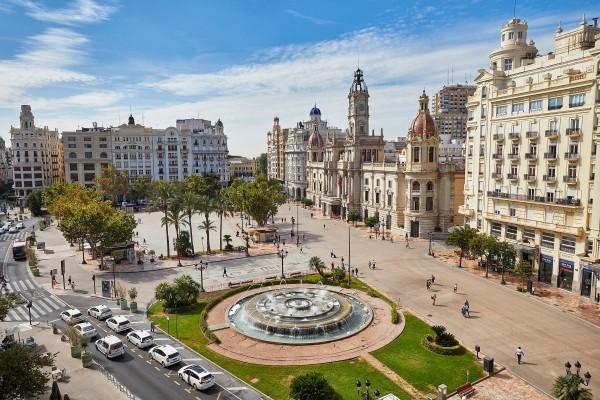
The Spanish city of Valencia officially starts, today, as the European Green Capital 2024. To celebrate this achievement, over 400 activities and events are foreseen to reach all sectors of the city, from specialised audiences in sustainability, production, and business, to the residents of Valencia. The purpose is to raise awareness of the triple crisis of pollution, biodiversity loss and climate change, and empower people to take action to address it.
Commissioner for Environment, Oceans and Fisheries, Virginijus Sinkevičius said:
Valencia has earned the Green Capital title because of its ambitious sustainability strategy, and it has learned from lessons in the past. For many decades, the city has been driven forward by a bold civic movement that sustains genuine change. People are Valencia’s asset. This year will enhance the experiences of citizens and support them even more in delivering the change we all need achieve for a better future.
Valencia’s motto is “On a Mission Together” and city authorities work with residents to reach their climate neutrality and environmental goals. With its strong emphasis on people, it effectively combines responses to environmental challenges with societal ones. This has made it a frontrunner in the transition to sustainability, and a source of inspiration for other European cities.
During a festive ceremony, María José Catalá, the Mayor of Valencia will receive the Green Book from Tiit Terik, deputy mayor of Tallinn, the 2023 European Green Capital.
The opening ceremony will be followed by a concert in the cultural centre of Palau de la Música. On 12 January, the first EU Mission for Climate Neutral and Smart Cities plaques will be awarded. Ten cities have been awarded the EU Mission Label in 2023, and five of these are Spanish cities, including Valencia. The EU Mission Label is an important milestone as it recognises the cities' plans to achieve climate-neutrality by 2030 and aims to facilitate access to public and private funding to achieve that objective.
Background
The European Commission launched the European Green Capital Award in 2010 to encourage cities to become greener and cleaner, and to improve the quality of life for their inhabitants. Around 75% of Europe’s population lives in cities and urban areas. Many cities play a leading role in managing the societal changes needed in the protection of the environment. They are key players for the implementation of the European Green Deal locally.
The European Green Capital Award is bestowed to cities above 100,000 inhabitants. Since 2010, the European Commission awarded the title to: Vilnius (2025), Valencia (2024), Tallinn (2023), Grenoble (2022), Lahti (2021), Lisbon (2020), Oslo (2019), Nijmegen (2018), Essen (2017), Ljubljana (2016), Bristol (2015), Copenhagen (2014), Nantes (2013), Vitoria-Gasteiz (2012), Hamburg (2011) and Stockholm (2010).
In 2015, the European Green Leaf title was introduced for smaller cities starting from 20,000 and below 100,000 inhabitants, with seventeen Green Leaf winners so far. The 2024 titles went to the Slovenian city, Velenje, and Treviso in Italy. The Commission encourages the winners to work together and use their title year to build alliances.
European Green Capital and Leaf Awards
A call for applications for the 2026 award titles has been launched with a 30 April 2024 deadline. Interested cities can find out more on the European Green Capital and Leaf website. The website features past winners and finalists, including expert assessments, jury reports and year reports from winning cities.
Social media
Twitter: @EUGreenCapital
Facebook: www.facebook.com/EuropeanGreenCapitalAward
LinkedIn: European Green Capital Award EU
Climate-Neutral and Smart Cities Mission
The EU Mission for Climate-Neutral and Smart Cities is supporting 100 cities in the EU and 12 cities in countries associated to Horizon Europe in their transformation towards climate-neutrality by 2030. Those cities are testing innovative cross-sectoral approaches, including for citizen engagement, stakeholder management and internal governance. By so doing, they will act as experimentation and innovation hubs to enable all European cities to become climate-neutral by 2050.
The Cities Mission is one of five EU Missions under Horizon Europe that offer concrete solutions to some of our greatest societal challenges. They have ambitious goals and aim to deliver concrete results by 2030. The other Missions focus on Adaptation to Climate Change, Cancer, Ocean and Waters, and Soil.
Green City Accord
Ambitious cities that want to improve their environment can also sign the Green City Accord. This scheme helps cities in monitoring their progress towards clean air, sound water, waste and noise management, as well as urban greening, not least by facilitating exchanges of best practices with other cities.
Details
- Publication date
- 11 January 2024
- Author
- Directorate-General for Environment

